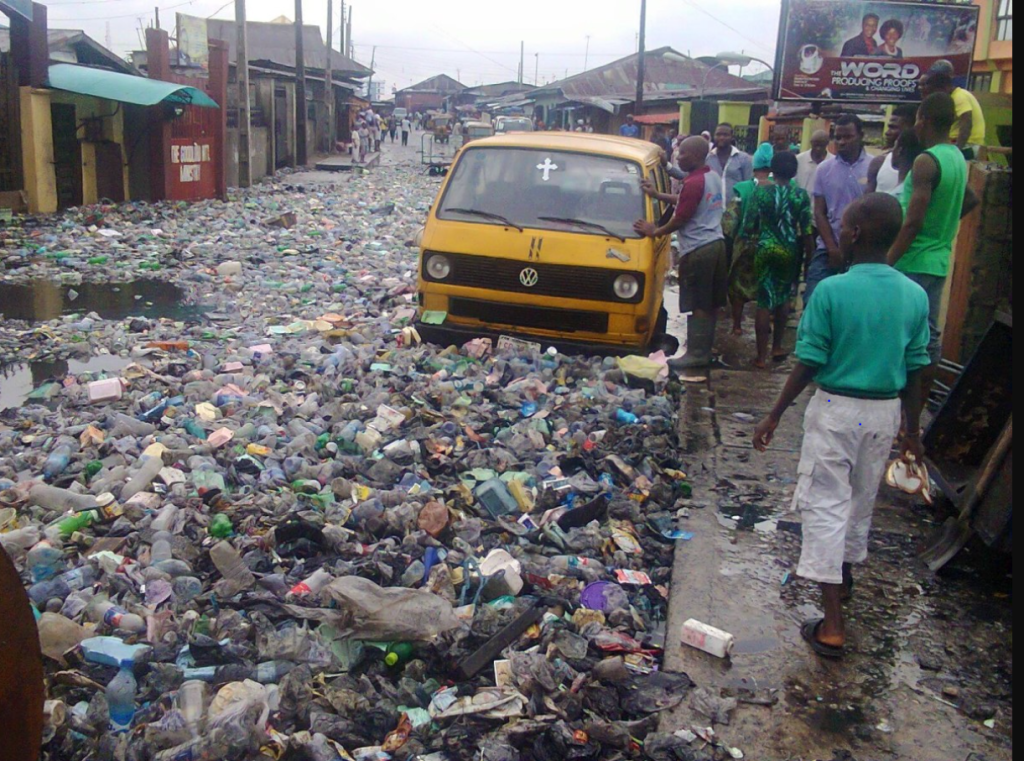
LAGOS! On the road to ‘smart city’
Just in case you seek the conclusion of this piece right from this outset, it is: Lagos State needs to critically assess its environmental practices for the sake of sustainability.
Although the state government has refuted a viral social media report claiming that it had reinstated the monthly environmental sanitation exercise and imposed movement restrictions during the exercise, the overwhelming environmental degradation in many areas of the state is too evident to ignore. Ironically, the very activity being dismissed could be essential for addressing the state’s severe cleanliness issues.
As a metropolis aspiring to be christened a “smart city,” Lagos requires a comprehensive approach to its longstanding waste management problems and must establish effective strategies to ensure collective sanitation and hygiene among its residents. The State Commissioner for the Environment and Water Resources, Tokunbo Wahab, clarified that Governor Babajide Sanwo-Olu intended to initiate a weekly community-based sensitization and awareness exercise involving all residents. He further explained that the governor emphasized state officials would lead by example, joining residents in voluntary clean-up efforts while promoting the importance of maintaining a clean environment.
Beyond these declarations, the government must adopt a multisectoral strategy to address the persistent waste issues plaguing Nigeria’s commercial hub. The discontinuation of the monthly environmental sanitation program aligns with a Court of Appeal ruling that prohibited Lagos from restricting citizens’ movement during the exercise. However, Lagos continues to struggle with significant sanitation challenges. Credit is due to former governor Babatunde Fashola (2007-2019) for implementing pragmatic policies that transformed Lagos into a cleaner city. Unfortunately, his successor, Akinwunmi Ambode, abandoned these effective measures, leading to a resurgence of filth. Under Governor Sanwo-Olu’s administration, waste now litters numerous areas across the state.
According to a 2022 estimate by the Nigerian Institute of Town Planners, Lagos generates between 13,000 and 15,000 metric tonnes of waste daily, equivalent to about 490 trailer loads, with each resident producing an average of 1.2kg of waste per day. This figure is expected to rise to 1.4kg per day in the next 15 years. The challenge of managing this enormous volume of waste is exacerbated by inadequate infrastructure, ineffective management, poor road conditions, and subpar urban planning. These factors hinder waste collection efforts, particularly in inner areas, resulting in piles of stinking refuse with no efficient disposal method.
This escalating crisis poses a significant threat to both the environment and public health. A 2016 World Bank report highlighted that solid waste management accounted for approximately 5% of global emissions. Additionally, the World Health Organization estimated that one in four global deaths are linked to environmental conditions. Despite the establishment of the Lagos State Environmental Sanitation to ensure the state’s overall cleanliness and educate the populace on environmental sanitation matters, many residents exhibit a lackadaisical attitude towards sanitation. They indiscriminately dump waste into water channels, operate in dirty markets, litter streets, clog gutters with plastic waste, and engage in open defecation.
In densely populated cities such as Tokyo, Shanghai, Delhi, and Dhaka, governments, in collaboration with the private sector, have invested in adequate incinerators and landfills, promoted changes in shopping and disposal habits, and enacted recycling laws to prevent street littering. Lagos can adopt similar measures and ensure that regular sanitation exercises are observed. Citizens, starting from a young age, need to relearn and adopt a culture of sanitation with a strong emphasis on environmental hygiene. Stricter laws should be enacted to impose penalties for environmental violations. Markets and residential areas that pollute the environment with waste should face fines or be required to engage in compulsory community service to remediate the environment.
No mincing words: Lagos State must take decisive and comprehensive actions to address its environmental challenges. By fostering a culture of cleanliness, implementing effective waste management strategies, and enforcing strict penalties for sanitation violations, the state can work towards becoming a truly “smart city” and ensuring a healthier and cleaner environment for its residents.
[give_form id="20698"]

